What would you ask a Catholic philosopher about God? (#AMA with Dr. Edward Feser)
by Brandon Vogt
Filed under AMA, The Existence of God
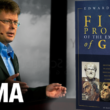
In a few days, Dr. Edward Feser will release his newest book, titled Five Proofs of the Existence of God (Ignatius Press, 2017). You probably know Dr. Feser from his sharply reasoned posts here at Strange Notions, or from his popular blog, which mainly focuses on the philosophy of religion. Dr. Feser is the author of several acclaimed books, including: Neo-Scholastic Essays (St. Augustine's Press, 2015) Scholastic Metaphysics: A Contemporary Introduction (Scholastic Editions, 2014) The Last Superstition:... Read More
Which Atheists Would You Like to See Interviewed?
by Brandon Vogt
Filed under Interviews, News

This summer, we've been working on some new plans for Strange Notions, and one of the ideas is to launch a new series of interviews with leading atheists. We've interviewed a handful of skeptics in the past, including Bob Seidensticker, Chana Messinger, Dr. Michael Ruse, and Doug Shaver, but we'd like to hear from many more. These interviews would be purely inquisitive. We're not looking to surreptitiously convert them through the questioning, or start a debate. They're friendly, casual, and simply... Read More
How Christians—Not the “Enlightenment”—Launched the Age of Reason
by Brandon Vogt
Filed under History
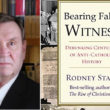
As we all know, and as many of our well established textbooks have argued for decades, the Dark Ages were a stunting of intellectual progress to be redeemed only by the secular spirit of the Enlightenment. The Inquisition was one of the most frightening and bloody chapters in Western history; the religious Crusades were an early example of religious thirst for riches and power; and Pope Pius XII was anti-Semitic and rightfully called “Hitler’s Pope.” But what if these long... Read More
Did Jesus Really Rise from the Dead? – An Interview with Carl Olson
by Brandon Vogt
Filed under The Resurrection

Christians around the world are just a couple weeks away from celebrating what they consider the most important event in human history: the Resurrection of Jesus from the dead. But for skeptics around the world, the celebration of Easter marks, at best, a mass confusion—delusion at worst. So who is right? Did Jesus really rise from the dead? Does the Resurrection make the best sense of the available evidence, or do we have better alternatives? Those are the questions that Carl E. Olson probes... Read More
The Most Famous Debate on the Existence of God
by Brandon Vogt
Filed under God, Morality
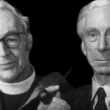
On January 28, 1948, the BBC brought together two of the century's brightest minds for a radio debate about the existence of God. To be sure, the debaters were not just lightweight showboats, blowing off steam. The two men represented the cream of the intellectual crop. Bertrand Russell was a renowned British philosopher, mathematician, historian, and perhaps the world's leading atheist at the time. He authored many skeptical essays and books, including the collection still popular today, Why... Read More
Book Giveaway (5 Copies) – “An Atheist and a Christian Walk into a Bar”
by Brandon Vogt
Filed under News

Thanks to the generosity of the publisher, today we're giving away FIVE copies of the a great new book from Randal Rauser and Justin Schieber, titled An Atheist and a Christian Walk into a Bar: Talking about God, the Universe, and Everything. Learn more and enter below! Read More Read More →
Strange Notions is the #4 Ranked Atheist Blog on the Internet!
by Brandon Vogt
Filed under News

I was alerted this morning that Strange Notions was just listed among the "Top 30 Atheist Blogs And Websites Every Atheist Must Follow." I was intrigued, partly because this isn't really an "atheist blog"—it's always been a discussion forum for atheists and Catholics—and partly because I follow many atheist blogs that seem to get wayyyyy more traffic and traction than we do. However, when I clicked over I was stunned to find Strange Notions not just on the list, but chosen as the #4... Read More
5 Shocking Plot Twists in the Story of Science and Faith
by Brandon Vogt
Filed under Christianity and Science

In his excellent book, Modern Physics and Ancient Faith (University of Notre Dame Press, 2003), physics professor Stephen M. Barr recounts the typical story of the the universe as told by scientific materialists. It's one of the best summaries of the naturalist worldview I've read, from any perspective: "The world revealed by science bears little resemblance to the world as it was portrayed by religion. Judaism and Christianity taught that the world was created by God, and that things therefore... Read More
Sean Carroll’s “Ten Considerations” for Naturalists
by Brandon Vogt
Filed under The Existence of God
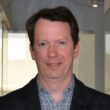
This is the final post in our long series exploring physicist Sean Carroll's new book, The Big Picture: On the Origins of Life, Meaning, and the Universe Itself (Dutton, 2016). In the book's penultimate chapter, which in my view is the book's strangest, Carroll offers an alternative to the Bible's Ten Commandments, what he calls his "Ten Considerations." They read like a mushy collection of Oprah-isms: Life isn't forever. Desire is built into life. What matters is what matters to people. We can... Read More
Learning Morality from Bill and Ted
by Brandon Vogt
Filed under Christianity and Science, Morality
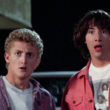
Early in this review series, I mentioned how Sean Carroll's new book, The Big Picture: On the Origins of Life, Meaning, and the Universe Itself (Dutton, 2016), gradually becomes weaker as you move through the chapters. It starts off strong and invigorating as he talks about cosmology and fundamental physics, his specialities. But as he moves into the philosophy of mind, meaning, and morality, he gets a bit wobbly. Moving From Ought to Is That's evident especially in his chapter on "What Is and... Read More







